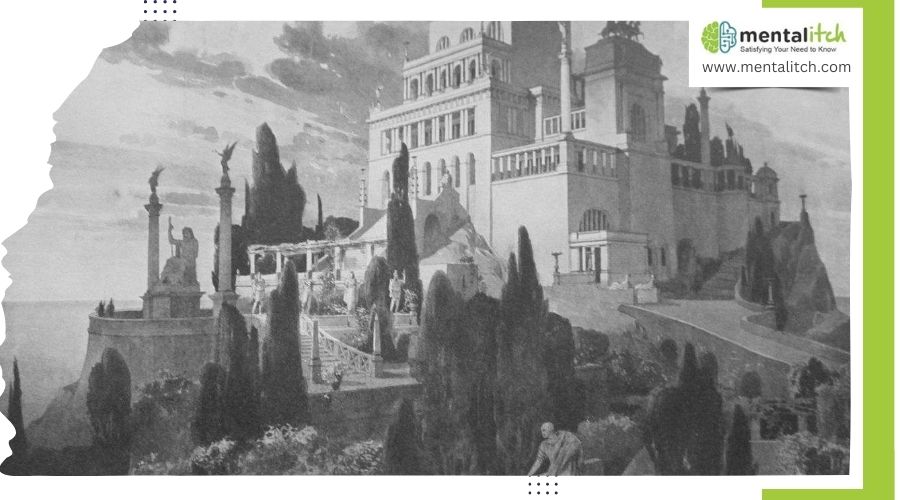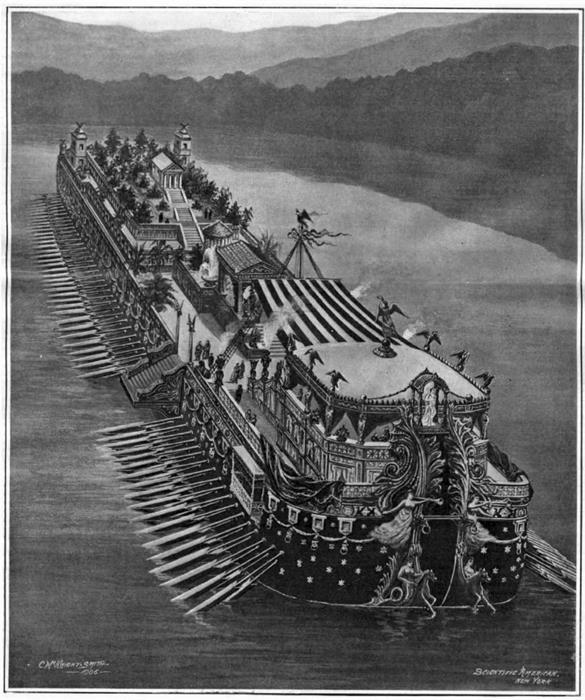Imagine ruling an empire so vast, it spans continents, cultures, and languages. Now, picture doing so with a flair that includes appointing your favorite horse as a high-ranking official and insisting on being worshipped as a living deity. Welcome to the world of Emperor Caligula, a figure whose leadership style was anything but ordinary.
Ruling over the Roman Empire with a flair for the dramatic and decisions that often left his contemporaries scratching their heads, Caligula has become synonymous with eccentricity. But does he truly deserve the title of the most eccentric leader the Roman Empire ever saw?
In this blog post, we’re going to take a closer look at Caligula’s reign, compare him with other notable Roman emperors, and see how he stacks up in the annals of ancient history. Get ready for a journey back in time, where we’ll sift through tales of extravagance, power, and, yes, a bit of madness, to answer the question: Was Caligula the most eccentric leader of the Roman Empire?
Historical Background: Caligula’s Path to the Throne
Born into the heart of the Roman elite, Caligula’s early life read like a script for a drama series. Initially named Gaius Julius Caesar Augustus Germanicus, he earned his nickname, Caligula, meaning “little boot,” from his father’s soldiers during their military campaigns. Imagine a little boy, decked out in a miniature soldier’s outfit, charming the tough Roman legionaries. It’s the kind of story that would make for an adorable social media post today—only, in ancient Rome, it was a sign of his destiny in a world far removed from ours.
Ascending to power in AD 37, at the ripe age of 24, Caligula’s rise was meteoric. He stepped into leadership after the death of his great-uncle and adoptive grandfather, Tiberius, a man whose reputation for austerity and fear was the polar opposite of what Caligula’s reign would come to symbolize. The young emperor inherited a vast empire, stretching from the sandy stretches of North Africa to the misty shores of Britain, at a time when the Roman Empire was at its zenith of power and complexity.
His entry into power was met with jubilation; people were overjoyed at the prospect of change and hoped for a leader who would be the antithesis of Tiberius. The political and social climate was ripe for transformation, with the populace craving a breath of fresh air. Caligula promised just that, initially showing signs of being a generous and empathetic ruler. But as the saying goes, “Heavy lies the crown,” and the young emperor’s reign soon took a turn toward the unpredictable, setting the stage for what would become one of the most talked-about tenures in ancient history.
Evidence of Eccentricity: Caligula’s Unconventional Reign
A Horse for a Senator
One of the most eyebrow-raising stories about Caligula involves his beloved horse, Incitatus. Not content with merely showering the animal with luxurious stables and servants, Caligula went a step further by appointing Incitatus as a priest and even proposing to make him a senator. This wasn’t just a quirky pet project; it sent shockwaves through the political elite of Rome. In a society where political offices were fiercely competitive and highly esteemed, giving such honors to a horse was not just eccentric—it was a thumb in the eye of the traditional Roman political order.
Divine Ambitions
Caligula’s antics didn’t stop at animal appointments. He also declared himself a living god and expected the public to worship him as such. He had statues of himself placed in temples alongside the gods and even referred to himself as Jupiter, the king of the gods, in public decrees. While emperors were often deified after death, Caligula’s demand for divine honors in life was unprecedented and viewed as outrageous by his contemporaries.
Architectural Extravagance
Caligula’s taste for the extraordinary extended to his building projects. He embarked on lavish and impractical constructions, including a floating bridge of boats across the Bay of Baiae so he could gallop his horse across it. This project was not only extravagantly expensive but also served no practical purpose, highlighting Caligula’s penchant for flamboyance over functionality.
Against the Grain
When compared to the norms of the period, Caligula’s behaviors and decisions stand out starkly. The Roman Empire, known for its military discipline, structured governance, and pragmatic engineering, found itself at the whims of an emperor who favored spectacle over stability. His actions, far removed from the pragmatic rulership of someone like Augustus, were seen as not just eccentric but dangerously capricious, challenging the very foundations of Roman societal norms.
These instances of Caligula’s rule paint a picture of an emperor whose leadership style was not just unconventional but unparalleled in its deviation from the expected norms of Roman leadership.
Caligula vs. Other Roman Emperors: A Battle of Eccentricities
Nero
Nero, who reigned from AD 54 to 68, often grabs headlines for his alleged role in the great fire of Rome and his subsequent persecution of Christians. Beyond these infamous acts, Nero was known for his deep dive into the arts, performing on stage as a musician and actor, activities considered unbecoming for someone of his stature. Unlike Caligula’s overt displays of eccentric governance, Nero’s eccentricitys was more personal, manifesting in his passion for performance and disregard for the societal norms of Roman elite behavior.
Commodus
Commodus, ruling from AD 180 to 192, took eccentricity to the arena, literally. He fancied himself the reincarnation of Hercules, fighting as a gladiator in the Colosseum. While gladiatorial games were a staple of Roman entertainment, the emperor’s direct participation was unheard of and deemed beneath the dignity of his office. His actions blurred the lines between ruler and entertainer, challenging Roman societal norms similarly to Caligula’s own boundary-pushing antics.
Augustus:
Augustus, ruling from 27 BC to AD 14, is often remembered as the paragon of Roman leadership. As the first emperor of Rome, he laid the foundation for the Roman Empire, steering it away from the brink of civil war and into a period of peace and prosperity known as the Pax Romana. His leadership style was characterized by strategic governance, diplomatic skill, and a keen understanding of Roman politics. Caligula’s decisions often appeared to be guided more by whim than by any strategic or political rationale. Unlike Augustus, who sought to stabilize and glorify Rome through his actions and reforms, Caligula’s reign seemed to destabilize and perplex, leaving a legacy mired in controversy and speculation.
Julius Caesar
Julius Caesar, one of Rome’s most renowned figures, earned his place in history through military conquests and significant reforms. His leadership was characterized by ambition, military genius, and a vision for a Rome that transcended the Republic’s limitations.
While Julius Caesar’s actions could be seen as bold and sometimes unorthodox, they were grounded in political and military strategy aimed at strengthening Rome. Caligula’s eccentricities, conversely, lacked such strategic underpinnings, often veering into the realm of personal indulgence or folly without clear benefit to the empire. Caesar challenged the status quo to reshape Rome, while Caligula’s behaviors often challenged the bounds of reason and governance without a discernible goal of reform or improvement.
Conclusion
While other emperors like Nero and Commodus also displayed behaviors that veered off the beaten path, Caligula’s actions, particularly his treatment of his horse and his self-deification, set new benchmarks for imperial oddity.
However, labeling him as the most eccentric Roman leader requires careful consideration of the broader historical context and the sources that inform our understanding of his rule. Much of what we know comes from accounts written by his adversaries, which may amplify his eccentricities. Despite this, the documented evidence of his unconventional rule is compelling.



